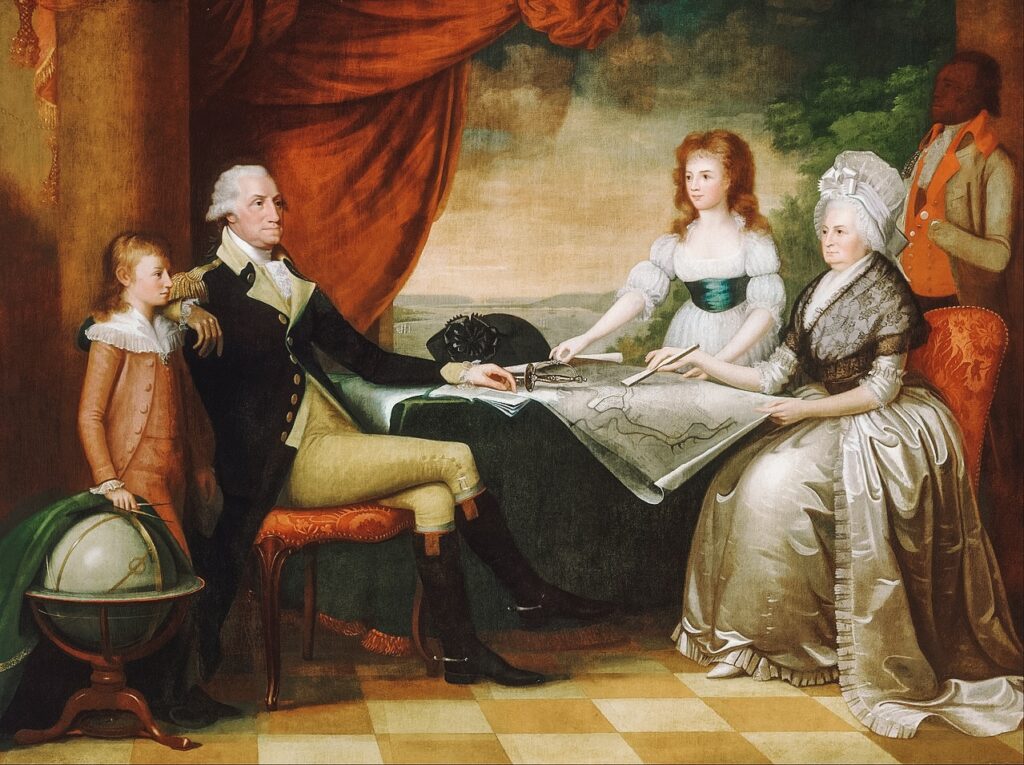Influential military wives from the Revolutionary War to today
- By Sandboxx
Share This Article

This article by Amanda Huffman was originally published by We Are the Mighty
Military spouses have played a key role behind the scenes in supporting military members from the beginning of America’s history. In honor of Women’s History Month, this roundup focuses on these amazing women. So many military spouses‘ stories are lost in history as their military service member’s service and sacrifice is often the main focus of historical records. However, we can see from the stories that were preserved that military spouses have made their mark on history just like the men and women who served in uniform.
The role and impact of military spouses continues today, but even the earliest military spouses showed their grit.
Revolutionary War

Unlike today’s war that continues despite the weather, in the winter, each Army would hunker down in place. Martha Washington would come to the camp at her husband’s request to provide comfort and even helped manage the camp. Martha oversaw social events, nursed sick soldiers, acted as a liaison between her husband and other officials and encouraged troops even though the chance of victory looked bleak. Martha Washington set a precedent for spouses in war through her reliance and strength and willingness to give up so much for their spouses.
Civil War

Julia Grant was married to Ulysses Grant, who was a General for the Union Army. Although her immediate family supported the Confederacy, she felt her role was to support her husband. And, she showed her loyalty to the Union time and again. She played a key role in the Civil War by providing him a constant flow of support. Because of her ability to manage her family and finances, he could stay focused on the war. Later, she made an impact as the First Lady when her husband became the President of the United States.
Vietnam War

If you have seen “We Are Soldiers” you know that Julia Moore was the wife of Lt Gen Hal Moore. When the Battle of Ia Drang went terribly wrong, she took it upon herself to notify her fellow military wives of the news. The Army didn’t have a system in place and would send telegrams via taxi cab drivers. Her efforts and complaints led to the U.S. Army, setting up a survivor support network and created casualty notification teams consisting of uniformed officers that are still in use today. She was also active in setting up the Army Community Service organizations that are now a permanent fixture on Army Posts. Her legacy continues today with an award in her name. The Julia Compton Moore Award recognizes the civilian spouses of soldiers for “Outstanding Contribution to the U.S. Army.”
Desert Storm
For Linda Stouffer, Desert Storm began months before as her husband deployed to Saudi Arabia to prepare for the war against Iraq. She was the head of the Family Support Group at the time, and watching the war come to life on television was very hard. The families left behind had little to no contact with their service members overseas, and they had to pick up the pieces of their lives and keep moving. There were countless military spouses who had to stay behind and take care of their families during a time of much uncertainty and change.
Post 9/11

The Rosie Network Facebook
Stephanie Brown is the founder of The Rosie Network that is designed to help military spouses jump into entrepreneurship. As a successful small business owner, she saw a need to help military spouses build their business and wanted to create a tool that provided needed resources. She is married to retired Rear Adm. Thomas L. Brown II (SEAL). Brown is still active in the military community and was recognized for her dedication with the Department of the Army Commander’s Award for Civilian Service.
Bonnie Carroll took her personal tragedy of her husband, Brig. Gen. Tom Carroll dying in a plane crash with seven other soldiers in 1992 and turned it into hope, resilience and encouragement for countless survivors. At the time of her husband’s death, there was no national support network for the families of America’s fallen heroes. In 1994, Bonnie launched the Tragedy Assistance Program for Survivors (TAPS) to give support to the families of the fallen. Since its launch, TAPS has cared for the more than 100,000 surviving family members. In 2015, she received the Presidential Medal of Freedom from President Barack Obama. She has also been featured in a number of publications and recognized for her work through various awards and programs.
Military spouses are no longer expected to accompany their partners onto the battlefield, but they are still asked to make massive sacrifices for their country. And for many, their contributions continue after their spouse has left the military behind. It has been proven throughout history that the men and women who stand beside their service members are making an impact on the future of both the military and America.
Related Posts
Sandboxx News Merch
-

A-10 ‘Thunderbolt Power’ Poster
$22.00 – $28.00 Select options This product has multiple variants. The options may be chosen on the product page -

F-35 ‘Lightning’ Poster
$22.00 – $28.00 Select options This product has multiple variants. The options may be chosen on the product page -

F-35 ‘Evolution’ Poster
$22.00 – $28.00 Select options This product has multiple variants. The options may be chosen on the product page

Sandboxx
The editorial team at Sandboxx.
Related to: Military History

The Space Force wants its own boot camp

Why the Eurofighter Typhoon remains a global favorite in modern air combat

Trump’s NASA pick says military will inevitably put troops in space

The Air Force’s B-47B Stratojet bomber made Soviet generals sweat
Sandboxx News
-

‘Sandboxx News’ Trucker Cap
$27.00 Select options This product has multiple variants. The options may be chosen on the product page -

‘AirPower’ Classic Hoodie
$46.00 – $48.00 Select options This product has multiple variants. The options may be chosen on the product page -

‘AirPower’ Golf Rope Hat
$31.00 Select options This product has multiple variants. The options may be chosen on the product page -

‘Sandboxx News’ Dad Hat
$27.00 Select options This product has multiple variants. The options may be chosen on the product page
